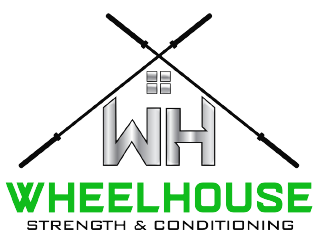Adrenal fatigue is a term used to describe a condition in which the adrenal glands, responsible for producing hormones like cortisol and adrenaline, become overworked and depleted. While not officially recognized as a medical diagnosis, many health professionals believe that chronic stress and other factors can lead to adrenal fatigue. In this article, we will explore how adrenal fatigue can affect fat loss and muscle building, as well as potential strategies for mitigating its impact.
The Role of Adrenal Glands in Stress Response:
The adrenal glands play a crucial role in the body’s response to stress. When faced with stressors, whether physical or psychological, the adrenal glands release cortisol, often referred to as the stress hormone. Cortisol is essential for managing stress, regulating metabolism, and maintaining blood sugar levels. However, chronic stress can lead to prolonged cortisol production, putting the adrenal glands under constant strain.
Adrenal Fatigue and Fat Loss:
Adrenal fatigue may have a significant impact on fat loss efforts. Elevated cortisol levels can lead to increased fat storage, particularly around the abdominal area. This is because cortisol stimulates the release of glucose and fatty acids into the bloodstream, providing the body with quick energy reserves during stressful situations. When stress becomes chronic, the body may continuously release glucose and fatty acids, leading to an increased risk of insulin resistance and weight gain.
Furthermore, chronic stress can disrupt sleep patterns, another crucial aspect of successful fat loss. Poor sleep quality is linked to increased cravings for high-calorie and sugary foods, making it harder to adhere to a healthy eating plan. Moreover, lack of restful sleep can lead to decreased physical activity and hinder the body’s ability to recover from workouts, both of which are essential for effective fat loss.
Adrenal Fatigue and Muscle Building:
Adrenal fatigue can also interfere with muscle-building efforts. High cortisol levels can break down muscle tissue for energy, inhibiting muscle growth. Additionally, when the body is constantly in a state of stress, it diverts resources away from muscle repair and recovery, making it harder to see progress from strength training workouts.
Furthermore, adrenal fatigue may lead to a decrease in anabolic hormones like testosterone, which play a crucial role in muscle building and repair. Low testosterone levels can lead to decreased muscle mass, reduced strength, and slower recovery after intense workouts.
Managing Adrenal Fatigue for Better Fat Loss and Muscle Building:
While addressing adrenal fatigue requires individualized approaches, some general strategies may help manage its impact on fat loss and muscle building:
1. Stress Management: Adopt stress-reducing practices like meditation, deep breathing exercises, yoga, or spending time in nature to lower cortisol levels.
2. Balanced Nutrition: Follow a well-balanced diet with adequate protein, healthy fats, and a variety of nutrient-rich foods to support fat loss and muscle building goals.
3. Quality Sleep: Prioritize good sleep habits to enhance recovery and optimize hormone levels.
4. Exercise Smartly: Engage in regular physical activity, but avoid excessive, high-intensity workouts that could further stress the body.
5. Consult a Healthcare Professional: If experiencing symptoms of adrenal fatigue, seek guidance from a qualified healthcare professional to address any underlying health issues.
Adrenal fatigue can have a profound impact on fat loss and muscle building efforts due to its influence on cortisol and other hormones. By implementing stress-reducing strategies, adopting a balanced diet, getting sufficient rest, and seeking professional guidance, individuals can better manage adrenal fatigue and improve their overall fitness goals. Remember that everyone’s body is different, and a personalized approach is key to success in navigating adrenal fatigue’s effects on fat loss and muscle building.

